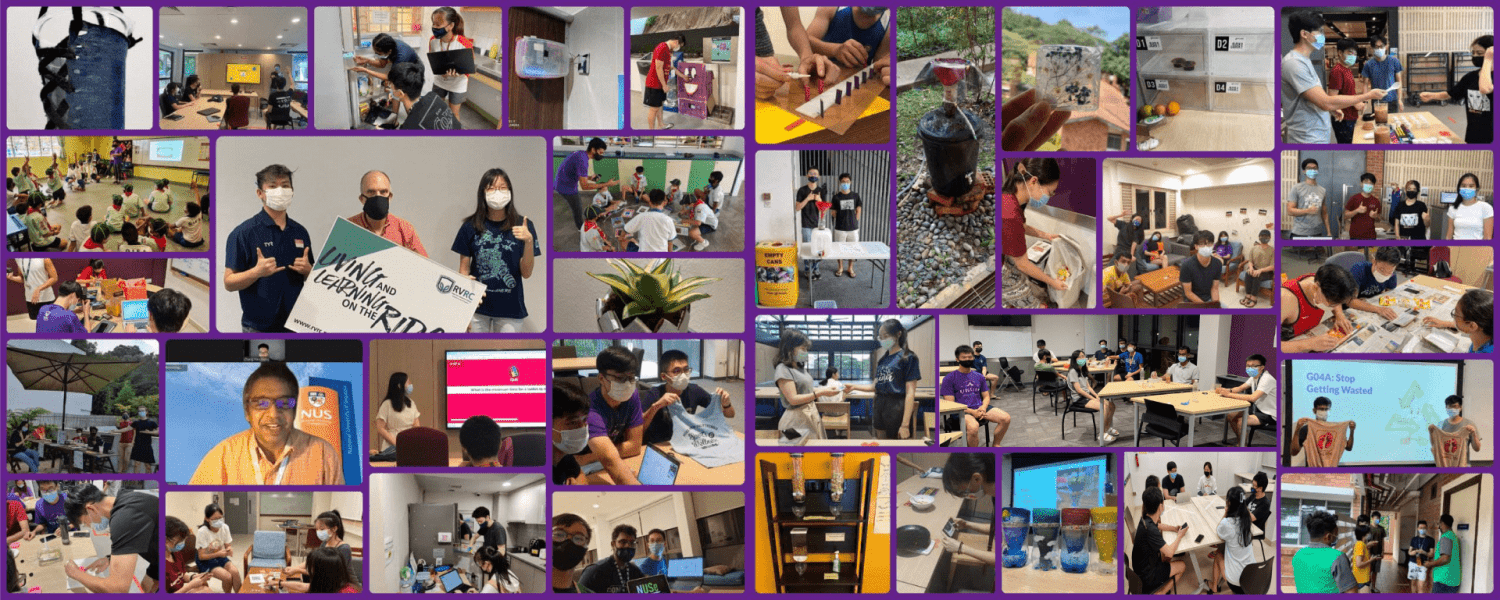Deng Yimin (FASS), Ong Chee Kiang (FoS), Ryan Tan Wei Keat (SoC), Tan Zhan Peng (FoS), Wong Zhuo Ting (Business School)
Academic Advisor: Ms. Sadaf Ansari
Considering the many fruit juice stalls operated in cafeteria on the NUS campus, an abundance of fruit pulp is disposed of as waste daily. With large areas covered by landscape, significant leaf litter is also generated as waste. Composting can effectively bridge the life cycle of these easily bio-degradable wastes of fruit pulp and leaf litter by turning them into useful compost. Inspired by the setting up of the Edible Garden at Ridge View Residential College (RVRC), our project aims to explore the feasibility and pilot a a student-led sustainable composting system. We also aim to document our learning experiences in a booklet for sharing with other student groups on campus. Aligning with the goal of a student-led system, our project had three main considerations. Firstly, the composting period must not exceed the duration of a semester, since monitoring the set-up would be difficult during the long semester break. Secondly, the set-up should be easily implemented to allow subsequent student groups to take up and sustain the project. Thirdly, the system should run on little or no operating/maintenance cost, excluding initial setup cost, in order to be deemed truly sustainable. With these principal considerations, we chose to test bed the Berkeley Composting Method as the most suitable option that fulfills all three criteria; it has a short composting period of 3 weeks, requires a simple set-up procedure of 4 to 5 steps, and has no operational costs apart from initial capital. We conducted two separate staggered pilot tests, to rule out incidental variations and gauge the feasibility. We will be sharing recommendations for future attempts based on this.
Keywords: Waste Management, Composting, Food Waste, Fruit pulp,
